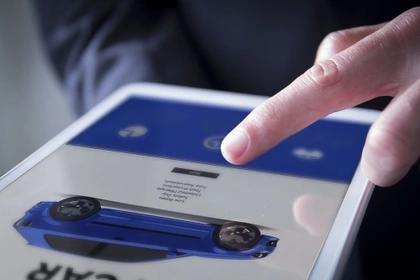How to cancel a car insurance policy
There are three main steps to cancelling your car insurance policy, as follows:
1. Weigh up the pros and cons
Before going ahead, remember that cancellation fees and admin charges may apply. Also, you may lose your no-claims discount if you end your agreement early.
Shop around to get different quotes, then compare the savings you’d make to any cancellation fees. (Check the terms and conditions of your agreement for more information).
Sometimes it can make more sense to wait until your insurance is up for renewal before switching. That way, you won’t face any cancellation charges. You’d need to do the sums to see what works best in your situation.
2. Contact your insurance company
If you decide to cancel your contract, you’ll need to call your insurance company to let them know. They might be able to match a deal you've found, to try to keep you as a customer - but there are no guarantees.
Don’t just cancel your direct debit, as they’ll continue to chase you for money. Missed payments can damage your credit score and ability to get credit in the future.
3. Check if you’re due a refund
In certain situations, the insurance company may owe you a refund. It doesn’t make a difference if you paid them upfront or on a monthly basis.
It depends on a number of other factors, such as the terms and conditions of your contract, how early you cancel, how much you’ve paid and if you’ve made a claim. If you are close to the end of your contract, there’s less chance of getting a refund, for example.
Cancelling insurance if your car is declared as SORN
If your car is declared as SORN (off the road), then you have a couple of options. You could either cancel your existing policy or take out third-party fire and theft cover.
Third-party fire and theft allows you to make a claim if your car catches fire, is broken into or stolen. Your no claims bonus will continue to build up if you take out this cover and don’t make a claim.
Cancelling insurance if you’ve sold your car
If you’ve sold your car without replacing it, you should cancel your car insurance with your existing provider. This means you won’t end up paying for something you no longer use. And if the new owner has an accident it won’t impact your no-claims bonus.
However, if you’ve bought a new car, you need to make sure there are no gaps in cover. You could either:
- ask your insurer to update your existing policy (which usually comes with an admin fee)
- or, cancel your current policy and set up a new one if you find a better deal elsewhere
Bear in mind, a new car may lead to your premiums going up or down, depending on the risk associated with it. For example, if it’s got lots of mod-cons, there could be a higher chance of theft, which could push your premiums up.
Remember to weigh up the pros and cons and calculate if the savings outweigh the costs. Sometimes it works out cheaper to stay with your current insurer once you’ve taken cancellation fees into account. Also, you may lose your no-claims discount if you leave early.
Can I cancel if I’ve made a claim?
Yes, you can cancel your car insurance if you’ve made a claim, but it could cost you money. If you pay on a monthly basis, you’ll need to make a final lump sum to clear the remaining balance. And if you paid upfront you won’t be due a refund.
What is the cooling-off period for car insurance?
By law, the cooling-off period for car insurance is at least 14 days from the date your insurance starts, or the date you get your policy paperwork (whichever is later).
This gives you some breathing space and allows you to cancel your policy for free if you change your mind. You should also be able to get a refund for any premiums paid. However, some insurers will still charge admin fees if you cancel within this time. (Though it'll be at a lower cost than if you were to cancel after the cooling-off period).
Full details will be included in the terms and conditions of your insurance policy.
What cancellation fees apply to car insurance?
You need to contact your current insurance provider to find out exactly what fees apply if you cancel early. You might be charged a percentage of the remaining money owed on top. The amount varies depending on the terms and conditions set out by your insurer.
In general terms, the less you’ve paid off and the earlier you cancel, the higher these fees are likely to be. Additional cover, like breakdown cover, is usually non-refundable.
Compare cheap car insurance quotes
- Search over 100 providers
- Quick and easy comparison tool
Disclaimer: We make every effort to ensure content is correct when published. Information on this website doesn't constitute financial advice, and we aren't responsible for the content of any external sites.






